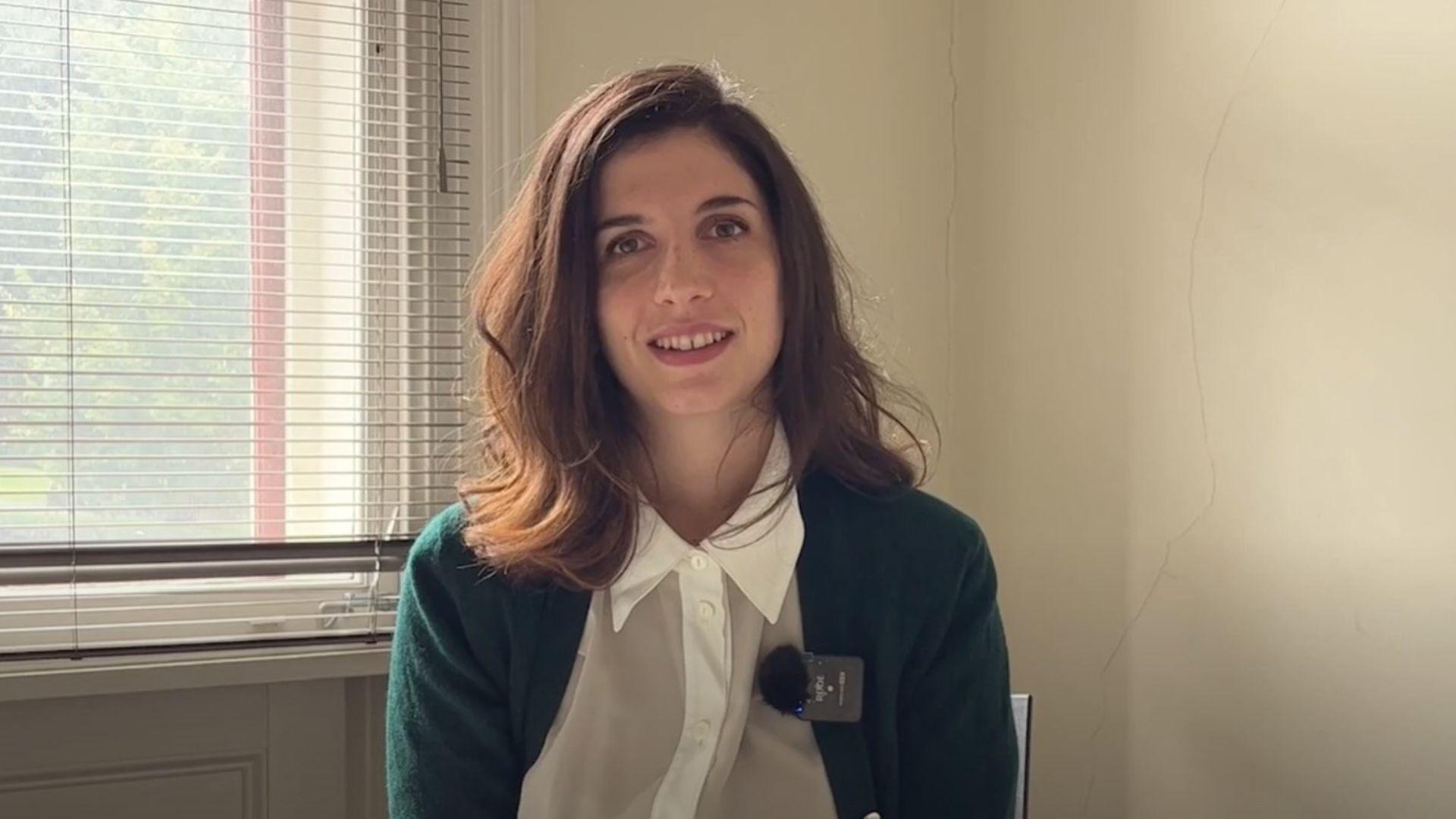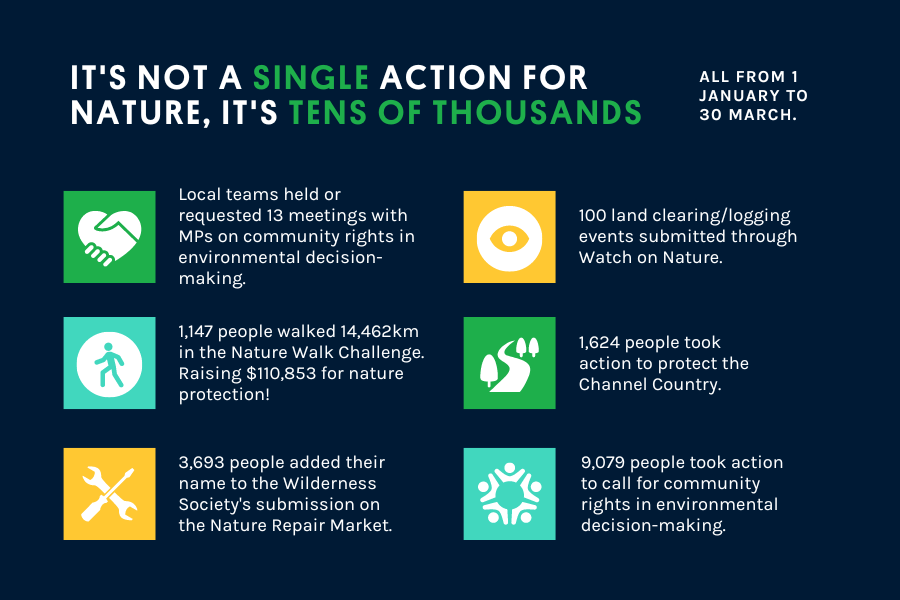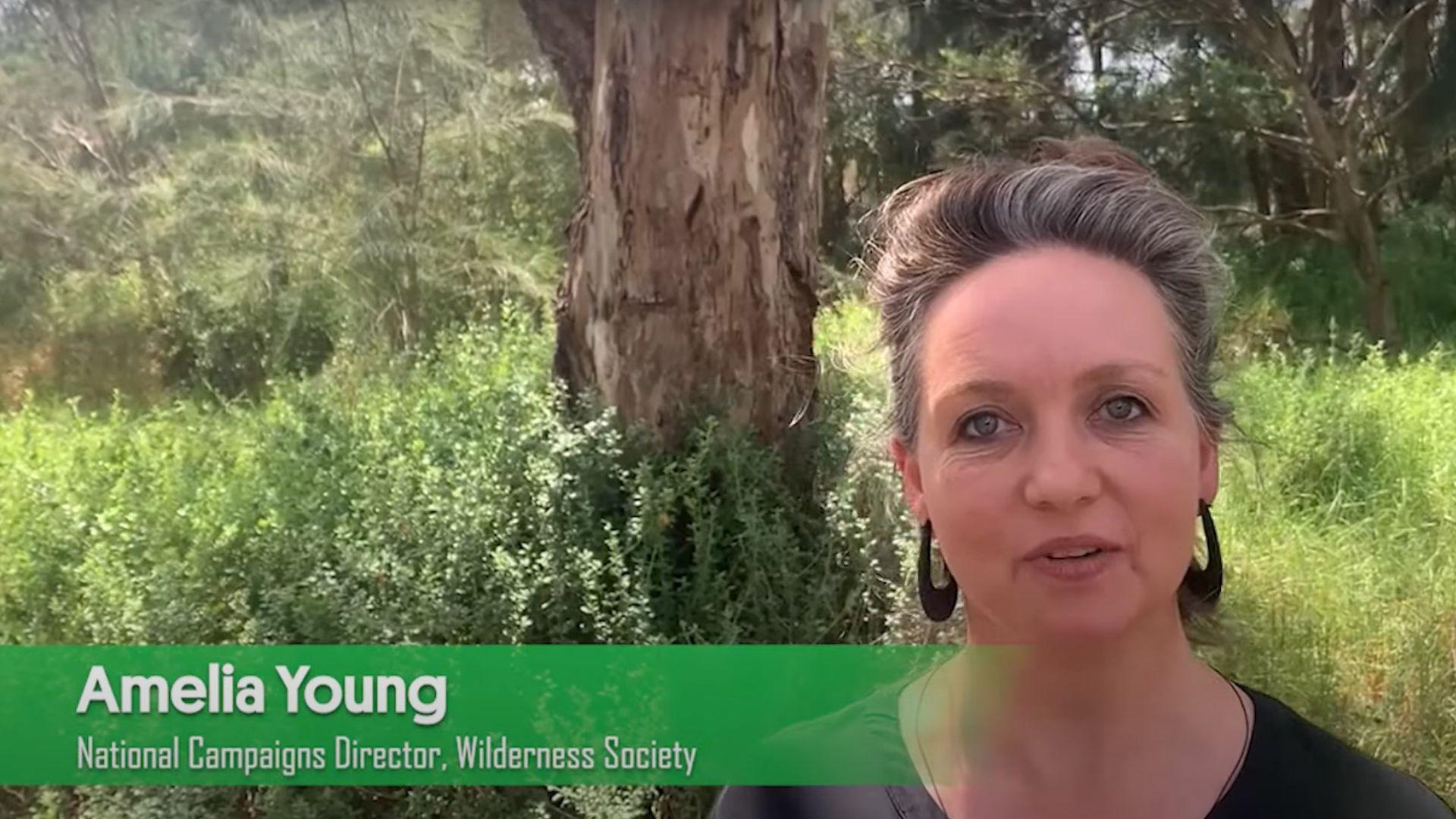More highlights

A great start to 2023
There's been plenty of progress for nature from January to March 2023
We've seen multiple state-wide billboard campaigns, big support for the King Island community in their fight against fossil fuels, massive news for native forest logging in Victoria, and much more besides.
Important work in Europe
Erchana completes her epic run for nature!
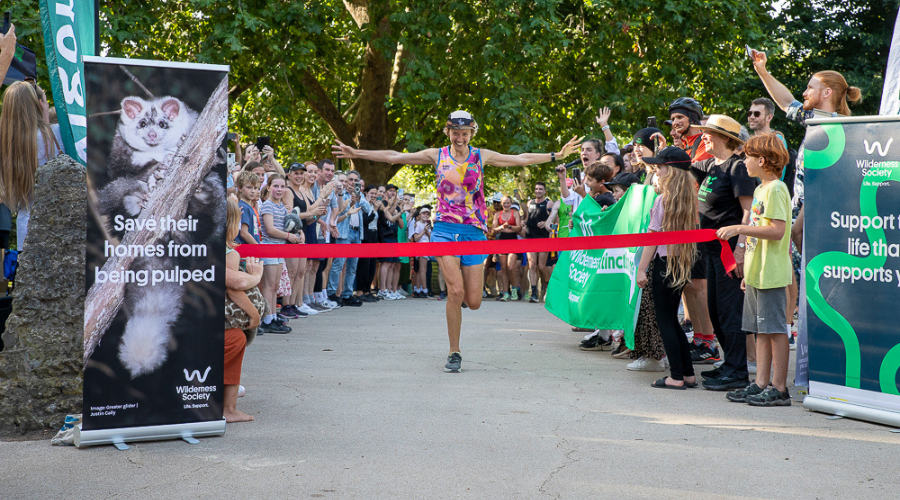
After 6,200km and 150 marathons, Erchana Murray-Bartlett finished her World Record-breaking feat for nature on 16 January.
It’s a challenge that began all the way back in August 2022. A World-Record-breaking series of marathons from the top of mainland Australia to the bottom to highlight the plight of endangered wildlife and support the Wilderness Society.
The 32-year-old runner finished her 150th marathon by crossing the finish line at the Tan, Melbourne’s famous running track. She was joined by hundreds of supporting runners, friends, family and members of the public.
“Almost 2,000 animal and plant species are on Australia’s national threatened species list, including more than 500 threatened animals. Imagine an Australia without the koala?” Erchana says. “That’s why I’ve been working in collaboration with the Wilderness Society to help stop the extinction crisis.”
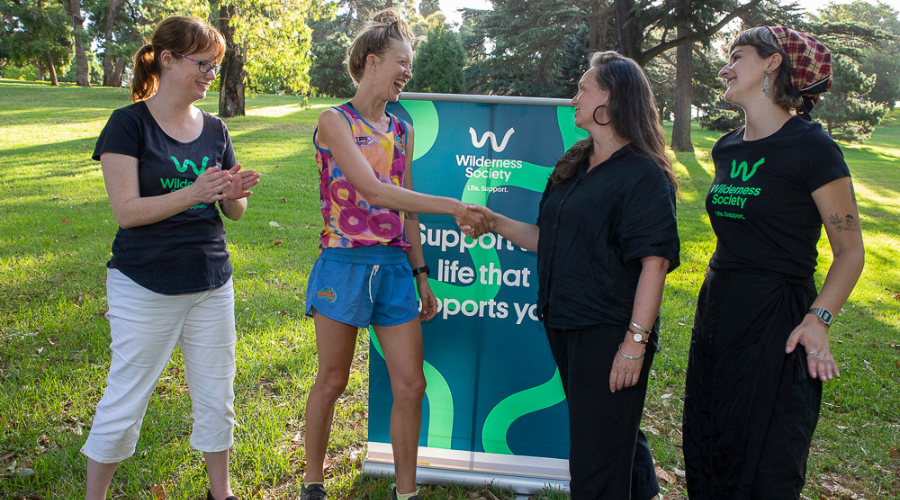
Amelia Young, the Wilderness Society’s National Campaigns Director, presented Erchana with an Honorary Life Membership. Past recipients include the Wilderness Society’s founder Bob Brown and Bob Carr.
“We thank Erchana for her important efforts to bring the extinction crisis to light,” says Amelia. “Australia’s biodiversity is incredibly unique, yet as a nation we are second in the world for biodiversity loss. Why is this happening? Plants and animals need habitat, but deforestation rates in Australia are now up there with the destruction of the Amazon. This needs to change.”
In numbers
Giving nature a say
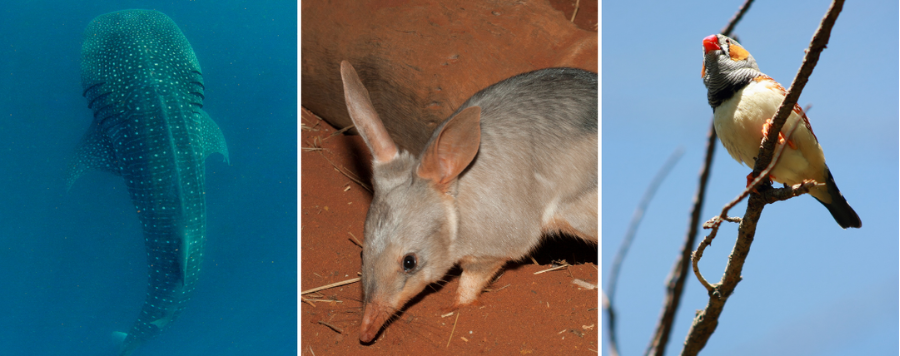
These past few months, your donations have been making sure nature has a say and helping shape policy making at a federal level.
Subject matter experts within the Wilderness Society have been busy answering multiple calls for submissions to various government inquiries and consultations—including outlining how the federal budget should be spent to best protect Australia’s nature, wildlife and climate.
A special thanks to the 3,693 of you who signed our submission to voice your concerns about the government’s proposed ‘nature repair market’ being prioritised ahead of fixing Australia’s broken national nature laws!
Together, we’re keeping the Albanese government accountable for its promise to restore community trust and confidence to environmental decision-making.
Nature films not to be missed
There's a must-watch new nature film charting the life of Wilderness Society co-founder Bob Brown out this month, plus Black Cockatoo Crisis is still on release if you haven't managed to catch it yet.
The Giants
New documentary The Giants is a biopic of Wilderness Society co-founder Bob Brown. It charts his time as the first openly gay member of parliament in Australia to leader of the world's first Green party.
Along the way is the fight to save the Franklin River and the birth of the Wilderness Society, and today's campaign to save the Tarkine rainforest. His environmental activism is told alongside the life story of trees and the forests he's spent his life trying to protect. With stunning cinematography, archival footage and extraordinary animation used to show forest landscapes, make sure you find a screen time near you.
Black Cockatoo Crisis
Meanwhile, Black Cockatoo Crisis continues its successful run. The Wilderness Society was proud to be an associate producer of the film. It’s an urgent appeal to stem the decline of some of WA’s most charismatic birds: the Baudin’s, Carnaby’s and red forest tail black cockatoos, which depend on the jarrah and karri forests.
Environmental filmmaker Jane Hammond introduces her film in issue #021 of Wilderness Journal, a special edition about WA’s spectacular jarrah forests.Find a screen time near you.
Nippon/Opal closes its white paper operation in Victoria
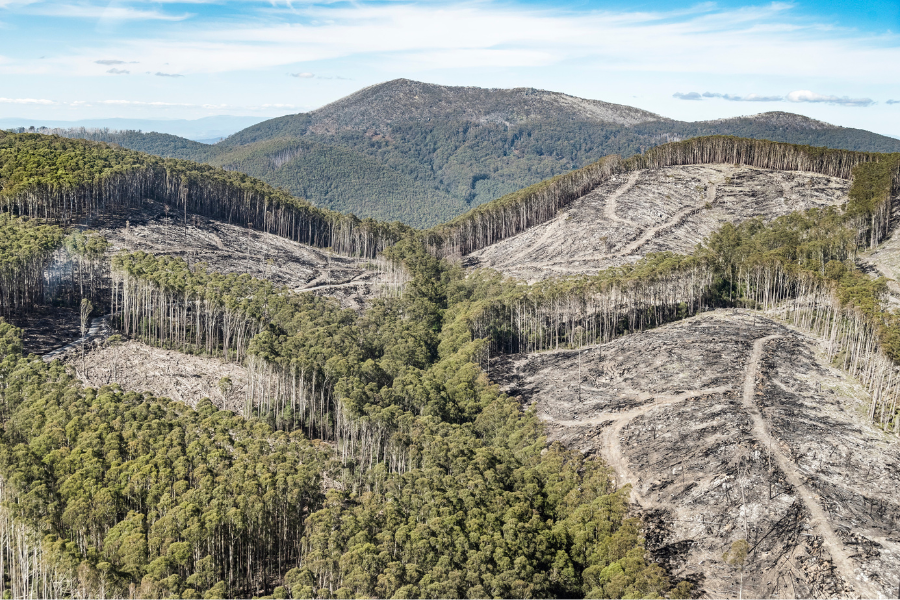
In February, Nippon announced that it had closed its white paper operation run by its Australian arm Opal at the Maryvale Mill in Victoria’s LaTrobe Valley.
It’s all thanks to your support over many years, which enabled a concerted campaign by the Wilderness Society and its partners including Wildlife of the Central Highlands, Friends of Leadbeater's possum, Kinglake Friends of Forest, Environment East Gippsland and Goongerah Environment Centre.
Together, we have been calling for an end to the senseless destruction of Victoria's forests, pulped for cheap office paper and packaging.
“Thanks to our supporters, the Wilderness Society ran a very successful ethical paper campaign,” says the Wilderness Society’s National Campaigns Director, Amelia Young. “This saw thousands of businesses move away from using copy paper made from critically endangered mountain ash forests.”
Nippon says this change is unplanned, but the writing has been on the wall for years. After decades of forest mismanagement, overlogging and bushfires, the wood has been running out.
While a significant step toward protecting Victoria’s magnificent forests, as Nippon shifts focus to making packaging, it must stop sourcing wood pulp from native forests altogether.
“The Victorian State Government announced it will end native forest logging, but not until 2030,” says Amelia Young. “This exit date can and must be brought forward so that a well-planned transition for the industry out of native forests and into plantations and recycled fibre can take place to support workers and their families through inevitable change.”
Billboards in South Australia and NSW
With your support we had two major billboard and advertising campaigns running in two states—SA and NSW.
In South Australia…
In March and the start of April, with your support, we ran a very public mobile billboard campaign asking the SA government to protect the state's spectacular wild places as a precursor to the Nature Forum on 16 April in Aldinga.
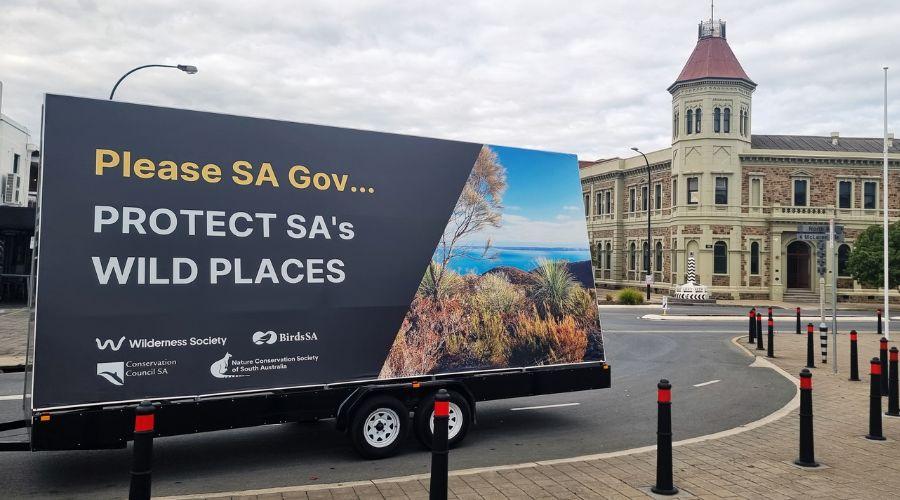
We gathered the community and invited the Deputy Premier to hear the discussion on some of the serious issues threatening the Fleurieu Peninsula and Kangaroo Island, and gave her an opportunity to respond with what will be done to protect this beautiful region.
In New South Wales…
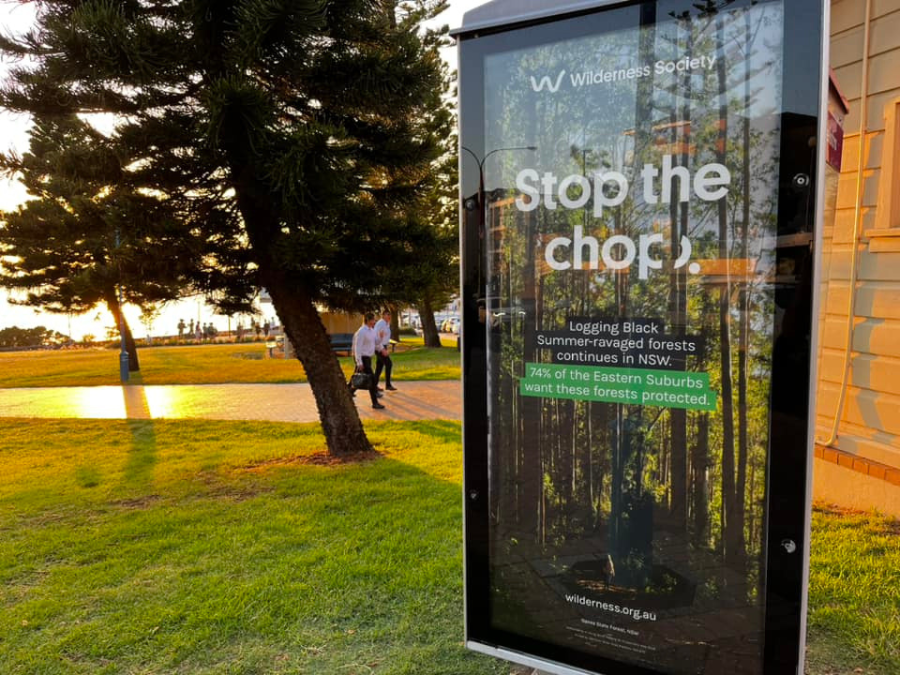
In NSW, your support enabled us to display advertising at over 50 locations around Sydney. These ads shone a spotlight on spectacular forests in bushfire-affected areas that are soon to be logged, which will wipe out thousands more hectares of threatened species habitat.
The ads also build the political case for action, by highlighting high levels of community support for forest protection (as demonstrated by polling commissioned by the Wilderness Society). The message is simple: ‘Stop the chop’—calling for an end to the ongoing destruction of NSW native forests after two-thirds of NSW native forests burned during the Black Summer bushfires.
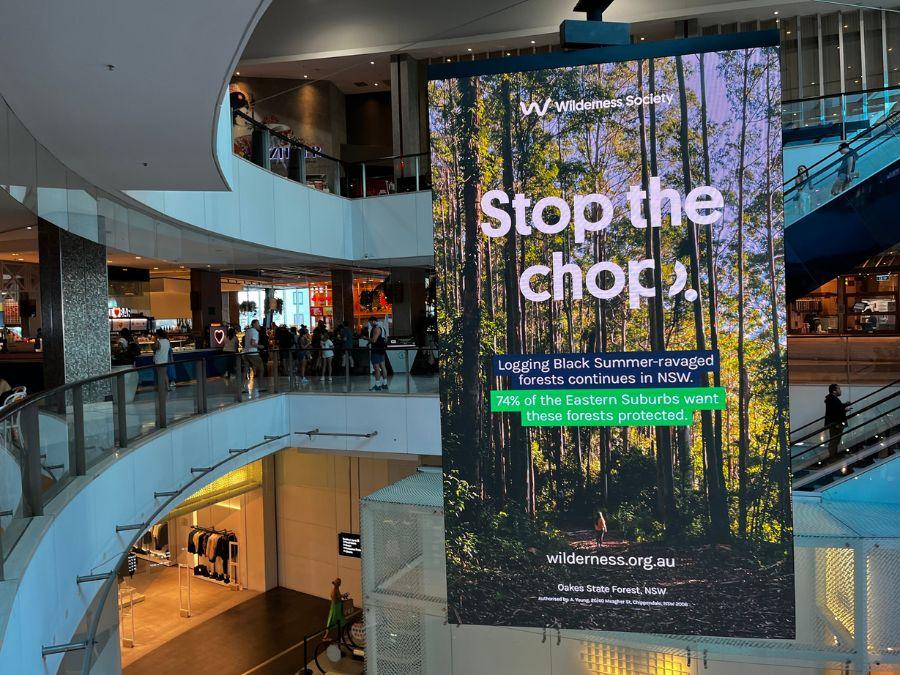
This work has helped secure some impressive policy commitments, including NSW Labor’s promise to create the Great Koala National Park, as well as Greens and ‘teal’ independent commitments to protect NSW native forests from industrial logging.
Now there is a new government following the NSW election on 25 March, the Wilderness Society—backed by people like you—will continue building pressure for the next NSW parliament to deliver better outcomes for people and nature.
King Island has spoken!
Back in 2021, the people of King Island, Lutruwita / Tasmania, explicitly said no to fossil fuel exploration off their coast. The community held the biggest rally in the island’s history and an independent survey of islanders found that 94% were opposed to conducting oil and gas exploration.
With the US fossil fuel giant ConocoPhillips planning to explore for and extract yet more fossil fuels in the Otway Basin off the coasts of King Island and Victoria, with your help we reminded the company that the people of King Island have already said no to fossil fuels.
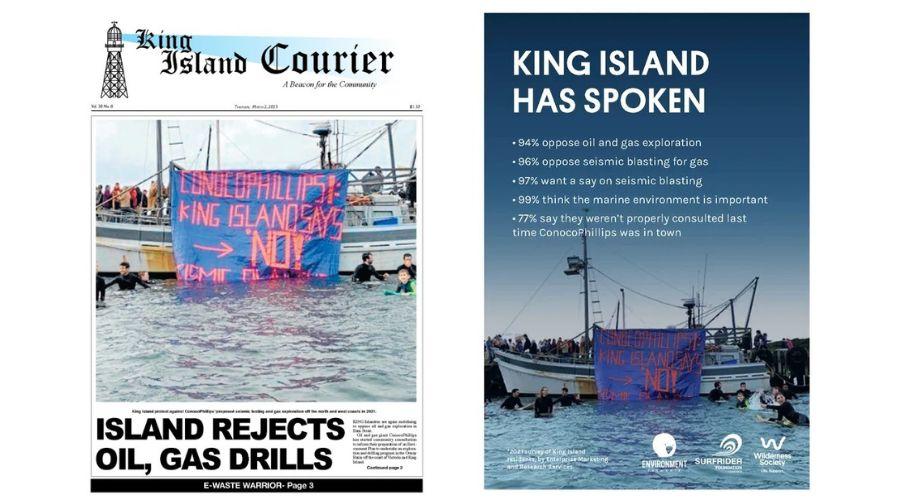
With your support, we posted a full-page advert in the local newspaper, which also ran a front page story on the community’s overwhelming objection to fossil fuels. In the article, Wilderness Society campaign manager for Lutruwita / Tasmania, Tom Allen, asked whether ConocoPhillips would respect the people’s community rights.
Together, we're showing that there is no social licence to drill for fossil fuels in the rich marine environment off the coast of King Island.
Nature needs you to keep watch!
We’re continuing to expose the horrific reality of large-scale land clearing across the country using our web-based app, Watch on Nature—and it’s all thanks to your support.
Using the latest satellite imagery, Watch on Nature helps users identify deforestation as it happens and allows us to hold governments and companies to account—so together, we can protect the forests we have left for the future.
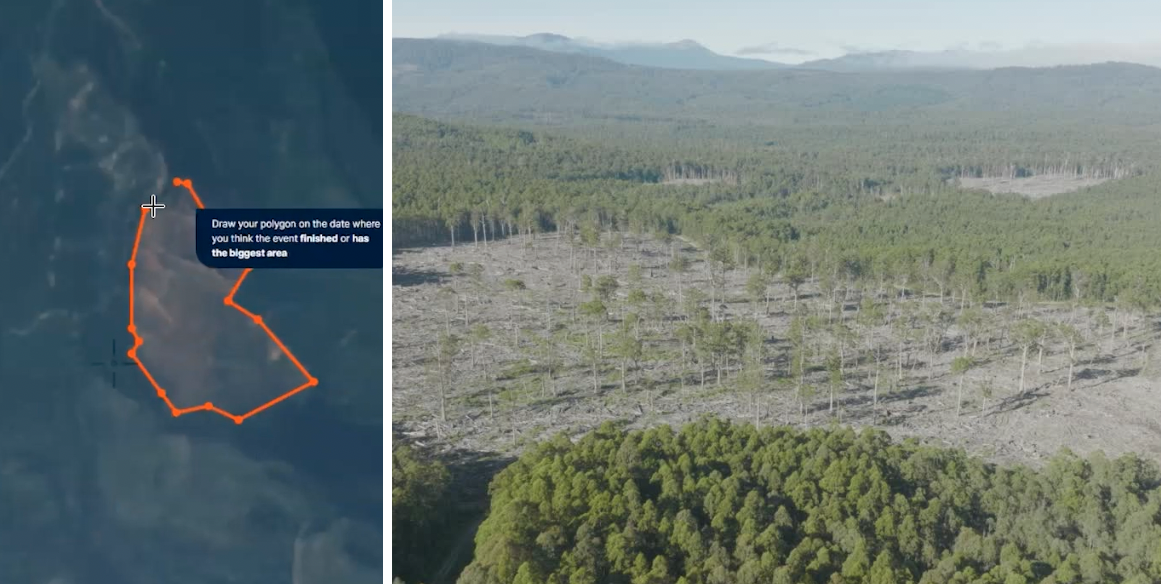
“It’s important that Australians get to see what’s being destroyed—including if bulldozers were used to knock down trees, what the tree cover looked like, and whether the bushland was native vegetation likely to have been home to vulnerable wildlife.” – Geospatial Analyst, Rachel Fletcher
